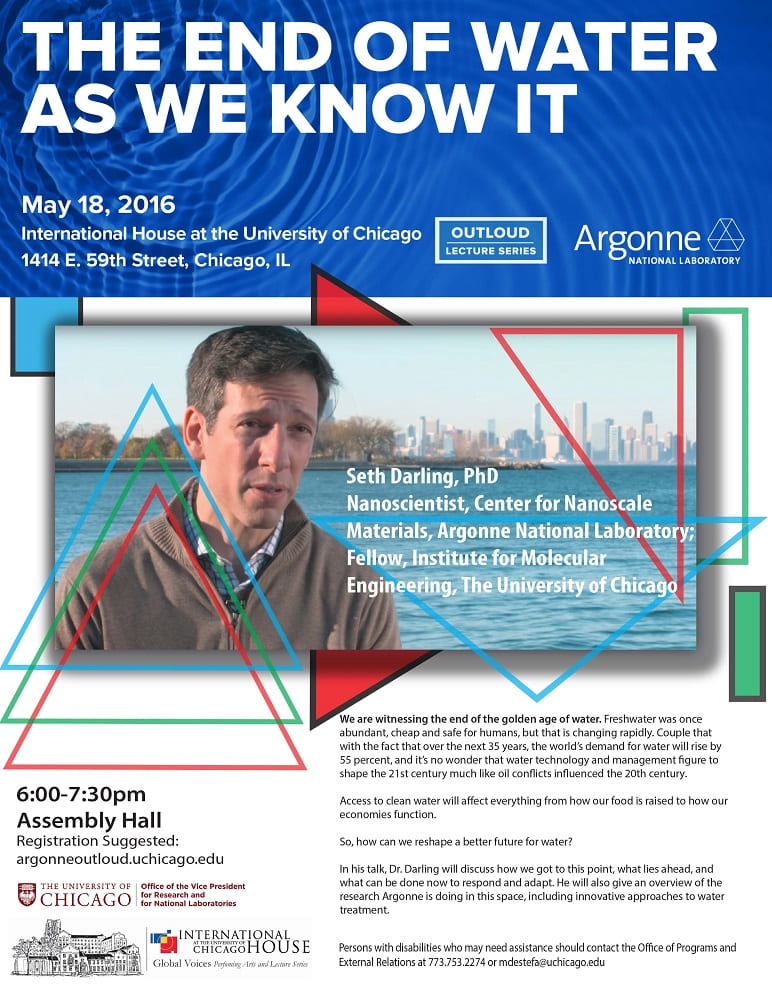Wednesday, May 18, 2016
6:00PM-7:30PM
Assembly Hall
We are witnessing the end of the golden age of water. Freshwater was once abundant, cheap and safe for humans, but that is changing rapidly. Couple that with the fact that over the next 35 years, the world’s demand for water will rise by 55 percent, and it’s no wonder that water technology and management figure to shape the 21st century much like oil conflicts influenced the 20th century.
Access to clean water will affect everything from how our food is raised to how our economies function.
So, how can we reshape a better future for water?
Dr. Seth Darling, Argonne National Laboratory scientist and University of Chicago Institute for Molecular Engineering Fellow will discuss how we got to this point, what lies ahead, and what can be done now to respond and adapt. He will also give an overview of the research Argonne is doing in this space, including innovative approaches to water treatment.
Dr. Darling’s current research blends chemistry, physics, materials science and engineering, and nanoscience to create and study materials for energy and water. He serves as the Solar Energy Systems strategy leader for the laboratory and has developed new models of the economics and life cycle assessment of solar energy. Recent studies have focused on design of next-generation solar energy devices, new architectures for water purification, and advanced lithography techniques based on sequential infiltration synthesis. He serves as the Solar Energy Systems strategy leader for the laboratory and has developed new models of the economics and life cycle assessment of solar energy.
Free and open to the public.
Reception: 6:00 – 6:30 p.m.
Presentation and Q&A: 6:30 – 7:30 p.m.
Sponsored by the Global Voices Lecture Series, Argonne National Laboratory, and the Office of the Vice President for Research and for National Laboratories.
